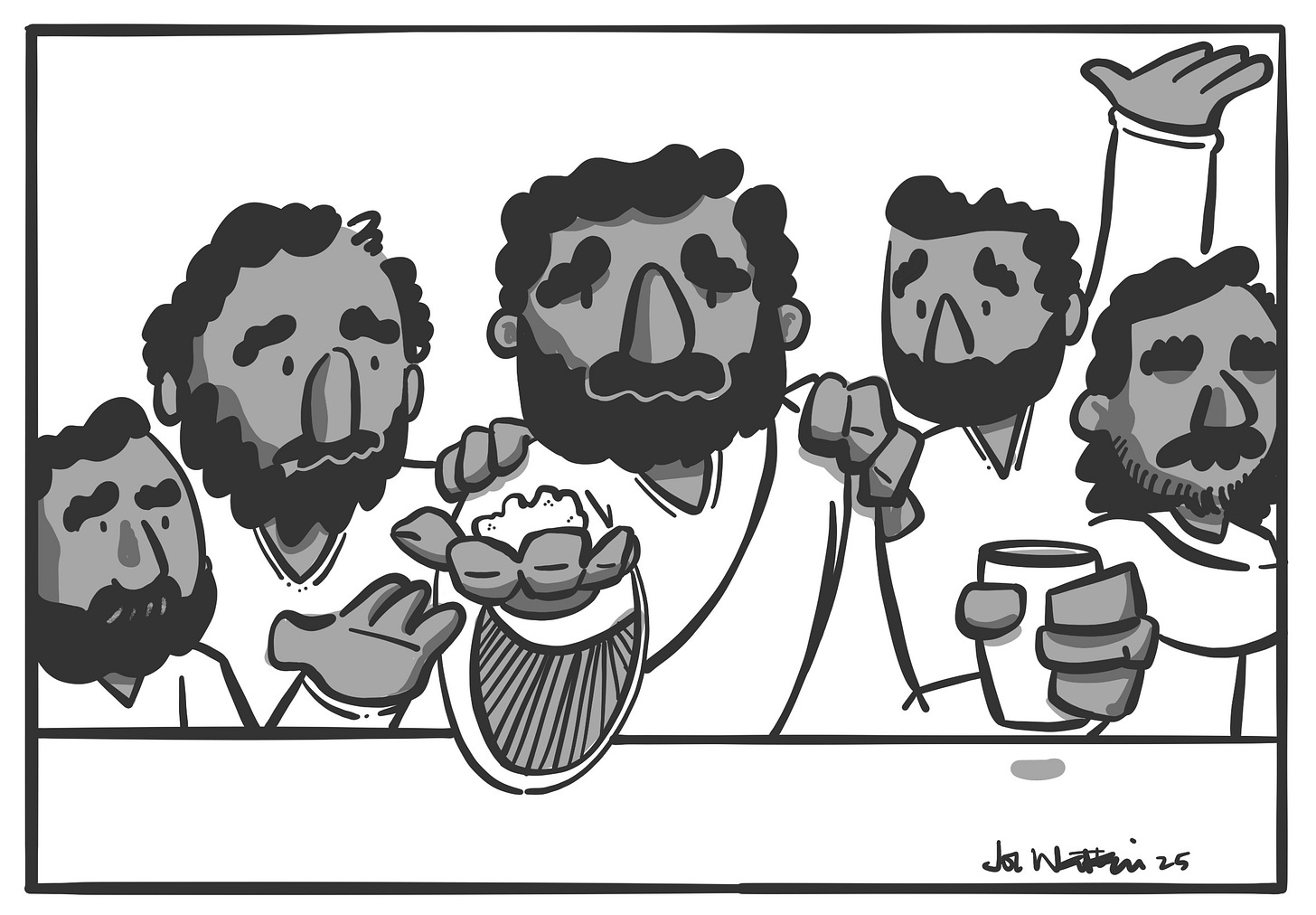Here we are in Holy Week. Jesus has been in Jerusalem, healing and interacting. Turning tables and trying to get people to understand that the Kingdom of God doesn’t come like the kingdoms of the world.
He’s shaken the convictions of the leaders in the city.
And they have decided he must be stopped, by any means necessary.
And now Jesus is celebrating God’s great act of liberation for God’s people, Passover. He’s eating with his disciples, and telling them in words and deeds that they are on the eve of God’s greatest salvation act for all the world. And in the midst of this dinner he declares that someone will betray him.
The disciples are aghast. Who Jesus?
Today’s readying is difficult to understand because he seems to answer their question right away, by giving bread to Judas, and yet they still seem confused.
Perhaps Jesus’ words with Peter at the end of the passage make sense of the point. Judas will leave to betray Jesus to the religious leaders, and Peter will deny he even knows Jesus. And as the story unfolds, we see that everyone will go into hiding. Almost everyone will abandon Jesus in the end.
And it’s everyone around the table who Jesus shares bread with that night. Which leaves us to understand our own place around the table. Will we take the bread from Jesus, only to deny him, or betray him?
As we reach the pinnacle of Holy Week, the American church faces this question in a very real way. White Christians are being put to the test. Will we follow the Jesus we see in scripture, who loves the outcast and sets the prisoner free? Will we follow the Jesus who loves the stranger and upends unjust systems by sacrifice and love?
Or will we join the majority of white Christians in this country who are seeking power? Will we join with those who have twisted the faith as a means of power and control in the world? Will we partner with oppressive religious movements who have no time for a Jesus who opens doors for the outcast or makes a seat at the table for the poor and the foreigner.
Jesus’ actions over the next few days won’t only offer personal salvation and forgiveness of sins, but will initiate the breaking in of the Kingdom of God and the opening of new creation in the midst of the old. His work of salvation and forgiveness makes it possible for us to participate in his holy kingdom. His death will make justice possible. His resurrection will make goodness real. In the end, he will oppose those who stand in the name of God, only to spoil it by crushing those around them who aren’t the right kinds of people.
Which leads us to the table with Jesus again, and the question, “Whom will we follow?”
Our Prayer for Today
Lord, may we trust you for our salvation,
and not our own wits, or the might of our nation.
May we rely on your body and blood for life,
and not our own means or societal status.
May we follow you in sacrifice for others,
and not see our neighbors as threats to our lives.
May we rely on your grace,
and offer it others this day.
Amen





